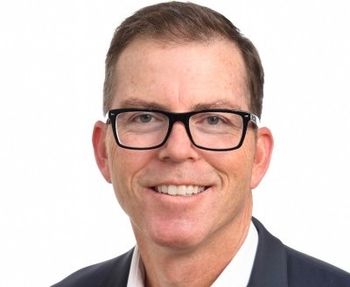
Culturally competent care should be part of every senior care facility | Viewpoint
Despite its undeniable significance, cultural sensitivity can be challenging for some senior care executives.
Senior care executives stand at the helm of institutions entrusted with the well-being of our elderly population.
With this responsibility comes the imperative to create environments where cultural sensitivity is not just an afterthought initiative but the foundation of long-term care centers. This commitment is rooted in compassion, dignity, and the recognition of individual worth.
Consider the mosaic of experiences, beliefs, and traditions that define the lives of those under our care. Each resident arrives with a unique narrative shaped by their cultural heritage, familial upbringing, and personal history. How do we honor and respect these diverse backgrounds? How do we ensure that our care practices transcend language barriers, dietary preferences, and customs so every individual feels seen, heard, and valued? These are the questions that underscore the urgency of integrating culturally competent care into the fabric of our senior care facilities.
The imperative for cultural competence speaks to the very essence of quality of life, having a profound impact on health outcomes, emotional well-being, and overall satisfaction among older adults. Yet, despite its undeniable significance, this initiative can prove challenging for some senior care executives.
Senior care must be accessible to all
Structural inequities, including limited access to affordable healthcare, linguistic barriers, and systemic discrimination, create formidable obstacles for marginalized communities seeking medical attention. For older adults, these barriers are compounded by age-related health challenges. The absence of culturally competent care further compounds these disparities, undermining trust in the healthcare system and perpetuating cycles of disenfranchisement.
We must advocate for policies and practices that promote equitable access to healthcare for all, regardless of race, ethnicity, or socioeconomic status. We must ensure that every individual has the same support and resources to age with dignity and grace. This entails not only addressing the structural barriers but also our own environments to be more culturally competent, linguistically inclusive, and attuned to the unique preferences and values of each resident.
Embracing a philosophy of inclusivity elevates the standard of care across the senior care sector. This demands collective action and a firm commitment to building communities rooted in compassion, equity, and human dignity.
Healthcare workers must understand different approaches to care
Healthcare workers, particularly those in senior care facilities, must recognize that a one-size-fits-all approach falls short of meeting the diverse needs and preferences of older adults.
Being culturally competent entails a deep understanding of how cultural beliefs, values, and traditions intersect with healthcare decision-making. This information is how healthcare workers can tailor their approach to an individual's care while fostering trust, collaboration, and, ultimately, better health outcomes.
Effectively communicating with diverse patients
Your conversational style can serve as a subtle yet powerful tool in building connections and promoting patient satisfaction. Here are some practical tips to enhance communication.
Respect preferred terms: Begin by asking patients which name and descriptive terms they prefer and make a concerted effort to use those consistently. This simple gesture can create a welcoming and inclusive environment, affirming patients' identities and promoting a sense of safety and acceptance.
Embrace person-first language: Utilize person-first language to avoid defining individuals by their condition or disability. For instance, refer to "people with diabetes" rather than "diabetics." This approach underscores the importance of recognizing patients as individuals first and foremost rather than reducing them to a medical diagnosis.
Adapt communication style: Recognize and adapt your communication style to align with your patients' preferences. Factors such as speech speed, volume, and conversational norms vary across cultures. Being mindful of these differences can facilitate more effective communication and enhance patient comfort and receptiveness.
Use plain language: Avoid medical jargon and abbreviations that may be unfamiliar to your patients. Instead, communicate in clear, straightforward language that is easily understood. Consider that idiomatic expressions and complex terminology in English may pose challenges for patients with different primary languages.
Attend to nonverbal cues: Be mindful of nonverbal communication cues, such as hand gestures, eye contact, smiling, touching, and physical distance. These cues may carry different meanings across cultures and can significantly impact the effectiveness of communication. Adapting your nonverbal communication to align with patients' cultural norms can enhance rapport and understanding.
Making cultural perks part of your offerings
Implementing cultural-specific elements within skilled nursing facilities and long-term care centers can profoundly enrich the care experience for residents from diverse backgrounds.
By incorporating elements that resonate with various cultures, facilities can create environments that feel welcoming, familiar, and inclusive.
For example, recognizing the significance of spirituality in many cultures, facilities can designate quiet prayer rooms or meditation spaces where residents can engage in religious or spiritual practices according to their beliefs. These spaces can be designed to accommodate various faith traditions, with features such as prayer rugs, religious texts, and symbols representing different religions.
Planning culturally specific events and activities can also further enhance the sense of community and belonging within senior care centers. For instance, celebrating cultural holidays and festivals can provide opportunities for residents to reconnect with their heritage and share traditions with others.
Facilities can organize multicultural events featuring music, dance, and cuisine from different cultures, fostering a spirit of celebration and cross-cultural exchange. Additionally, offering language-specific programming or interpreters can ensure that residents who speak languages other than English can fully participate and engage in facility activities and communication.
Every older adult under our care should receive personalized, respectful, and inclusive support that honors their diverse backgrounds and identities. We must continue to work toward a future where cultural diversity is celebrated, disparities are addressed, and every older adult receives the dignified and compassionate care they deserve.
Melissa Powell is COO of Genesis HealthCare.






























